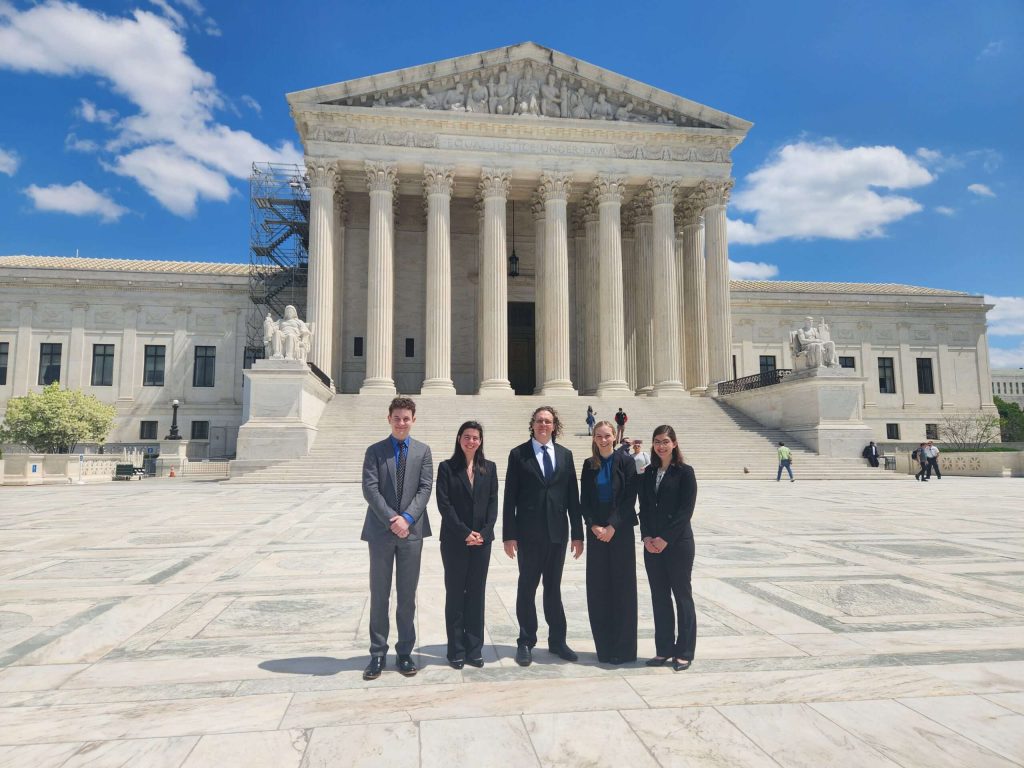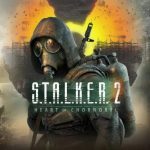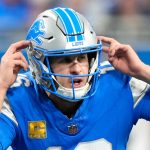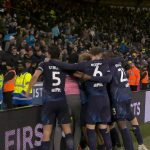On April 24, 2029, the Harlan Institute and Ashbrook held the championship round for the 12th Annual Virtual Supreme Court competition. The top two teams presented oral argument at the Georgetown Supreme Court Institute in the case of Moody v. NetChoice. Presiding were Judge Royce Lamberth (District Court for the District of Columbia), Judge Gregory E. Maggs (U.S. Court of Appeals for the Armed Forces), Judge Emin Toro (United States Tax Court). Kevin Bizily and Maxwell Steinberg from Minnesota represented the Petitioner. Nathaniel Marks & Edward Napoli from Regis High School in New York represented the Respondent. After a well-argued round, the judges selected the Petitioners as the Champions, with Kevin Bizily as best oralist.
The students and their coaches offered these generous comments about the competition:
“I have had the opportunity to compete in the Harlan Institute-Ashbrook Virtual Supreme Court for the past two years, mooting both SFFA v. UNC and Moody v. NetChoice during this time. The competition has been one of the highlights of my junior and senior years, and given me an opportunity to thoroughly study the cases and experience the work of written and oral appellate advocacy. The trip to DC for the championship round was incredible; I greatly enjoyed both visiting the Supreme Court and arguing at Georgetown’s Supreme Court Institute. Competing in Harlan has improved my legal writing and speaking skills, which I know will serve me well in years to come. I strongly recommend the competition to students considering a career in law, and wish next year’s participants all the best with the OT2024 case!”
-Kevin Bizily
“I’ve participated in many speech and debate-related activities throughout high school, but my time competing in Harlan’s Virtual SCOTUS Competition stands out. The competition gave me a unique outlet to expand my love for the Supreme Court, allowing me to experience the kind of oral arguments I love listening to from a new perspective. Even after spending hours preparing for difficult hypotheticals and fine-tuning answers, standing up at the podium for the championship round required something different: The entire experience was like playing 4-dimensional chess as I learned to sense the nuance implicit in the questions, reading each as a tea leaf for where a judge was trying to push me. I’ve always heard that oral advocacy is an art, but after Harlan, I think I really know what that means for the first time.”
-Maxwell Steinberg
“I had a wonderful time participating in the Harlan Institute’s moot court competition, and I will recommend it to all of my friends who are interested in constitutional law! I look forward to hearing the Supreme Court’s ruling on Moody v. Netchoice in June and comparing it to our own experiences arguing the case.”
-Edward Napoli
“It’s great that there’s an opportunity for high school students, not just students in college or law school, to participate in a Constitution-centered moot court. I look forward to participating again both next year and the year after!”
–Nathaniel Marks
” In a time of polarization and increasing lawlessness, it is inspiring to see young people grapple with complex legal issues intelligently and civilly.”
Coach Eric DiMichele
Here are the photos from the round:
And here are photos from the Supreme Court:
The post Congratulations to the Finalists of the Harlan Institute-Ashbrook Virtual Supreme Court Competition appeared first on Reason.com.







